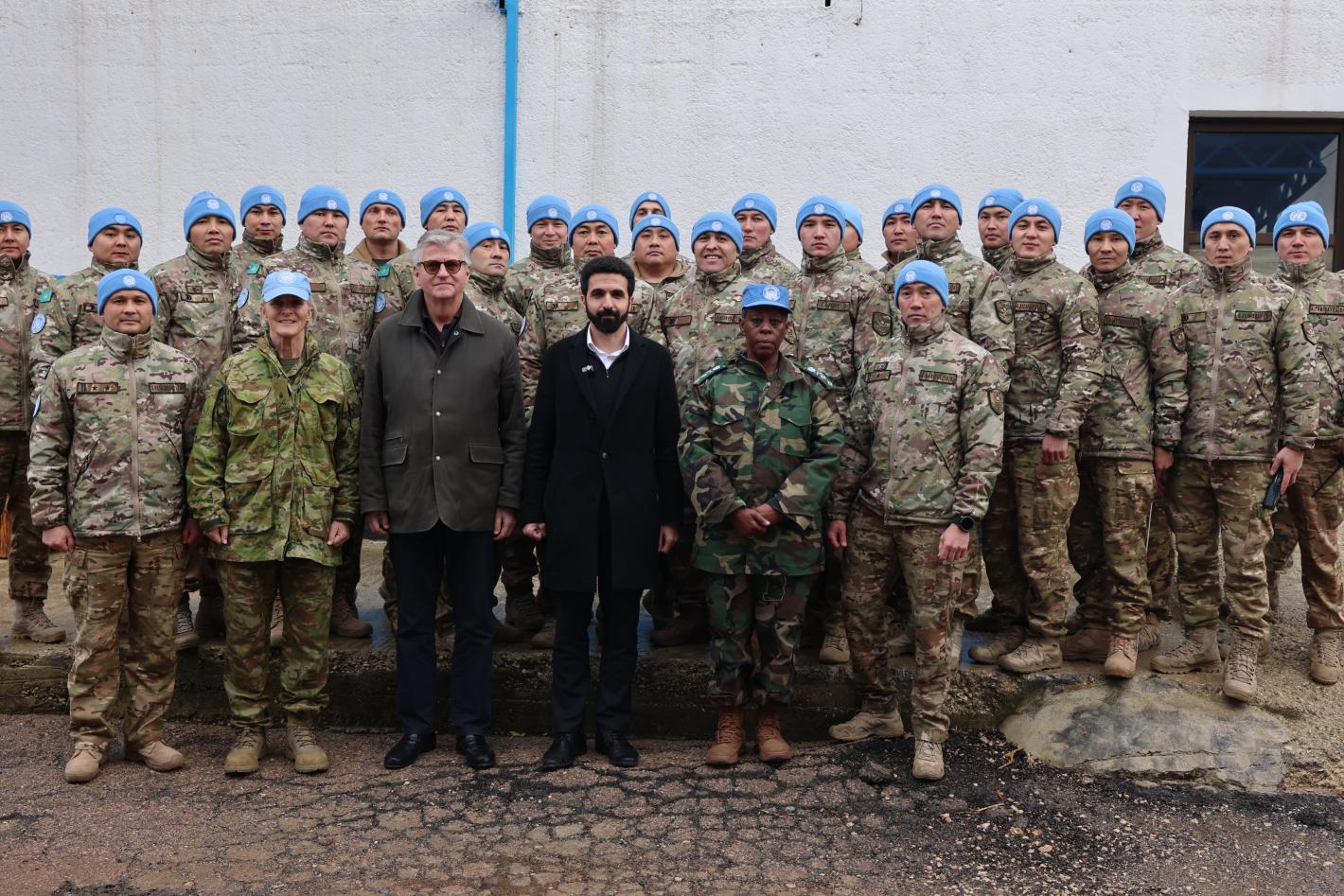It is late January when Jurga Didziokaite returns to the Faouar school in Syria that the United Nations Disengagement Observation Force (UNDOF) peacekeepers recently refurbished.
“Before UNDOF renovated the school, it was cold but now the windows are fixed so it is warmer and more comfortable here in the school, we do not get sick anymore, "12-year-old Saleh who is in 6th grade tells the UNDOF Civil Affairs Officer.
“The roof of the school was leaking in the classroom, and water was dripping on our heads. Now it is dry and warm in winter in the classrooms,” her classmate Bayam chimes in.
The Faouar school is one of the 19 Quick Impact Projects (QIPs) that the mission has implemented since the mission returned to Syria in 2019. These projects are equally distributed in the area of responsibility of UNDOF, including the most deprived areas, and aim to build trust between the peacekeeping force and local population, and local authorities. From refurbishing health centers to improving parts of roads, and renovating water wells and sports fields, they all seek to improve communities’ access to basic services. The Faouar school is one of four schools that have been refurbished, benefitting over 425 children and their teachers in total.
“Refurbished schools contribute to a positive learning and teaching environment and together with child-friendly space, they help reduce students’ drop out and improve their performance. Projects like these help boost students’ and teachers’ creativity and provide incentives to study,” Faouar school’s headmaster said.
“Even one child without education is too many. The opportunity to get an education is a ticket to a brighter future for the young generation of Syrians. Supporting schools with the QIPs, UNDOF increases opportunities for boys and girls”, Jurga believes. “That is why UNDOF intends to continue refurbishing schools in the most deprived areas,” she adds.
After years of conflict, it is estimated that only one-third of all schools are fully functional in Syria with millions of children without access to education or dropping off school to support their families.
“Safety and stability of the Golan Heights region depend to a large extent on an economically self-sustained and empowered population. The impact of the war, compounded by sanctions which are exacerbated by the global recession and economic crisis in neighboring Lebanon, have increased the need for aid provided by a limited number of actors operating on the ground,” Jurga explains.
To strengthen the impact and scope of these projects, UNDOF Civil Affairs has increased its budget allocation to QIPs by 50% and coordinates with the United Nations Country Teams which gathers UN agencies working in the area to prevent duplication and best respond to unanswered needs.
“UNDOF’s projects supporting the local population have become increasingly important and our peacekeepers volunteer their time by painting the buildings, installing electricity and internet, clearing project sites from debris, and also playing with the children in the refurbished schools,” Jurga adds.
UNDOF is coordinating with the local authorities to assess their needs and has started planning for new QIPs including the renovation of more schools, the building of a water well, and the provision of a solar panel to a hospital.






